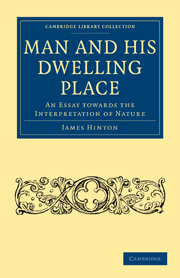Book contents
Summary
We know that we have passed from death to life.
FROM the state in which man is, Christ died to save him. His life he gives for man who has not life. So we are made to know God in the true sense of knowing, and in that knowledge have our part in the life eternal.
All the difficulties which have rendered the nature of the eternal life bestowed by Christ a matter of dispute, resolve themselves when it is remembered that man is dead. For the affirmation of the New Testament is, that in Christ is given to men a life which makes them alive from death. Therefore this life is the opposite of the death in which they are. If that be eternal life, then is this eternal death. So that by the death which we know, we may know also what the life must be. But as we cannot know this life by sense, so neither can we know it intellectually. We cannot think it. A chief part of all the difficulty that has beset religious questions arises from our resolution to conceive the eternal. It cannot be conceived. It is to be known spiritually, actually; it will not be put into our thought. Having learnt that by our intellect we can know no veritable fact at all, but only the appearances of things, how should we suppose that by the intellect we should know the eternal? We have made ourselves the standard, and projecting our own deadness into an endless future, have called that eternal life; but God's thoughts are not as our thoughts.
- Type
- Chapter
- Information
- Man and his Dwelling PlaceAn Essay towards the Interpretation of Nature, pp. 209 - 213Publisher: Cambridge University PressPrint publication year: 2009First published in: 1859



